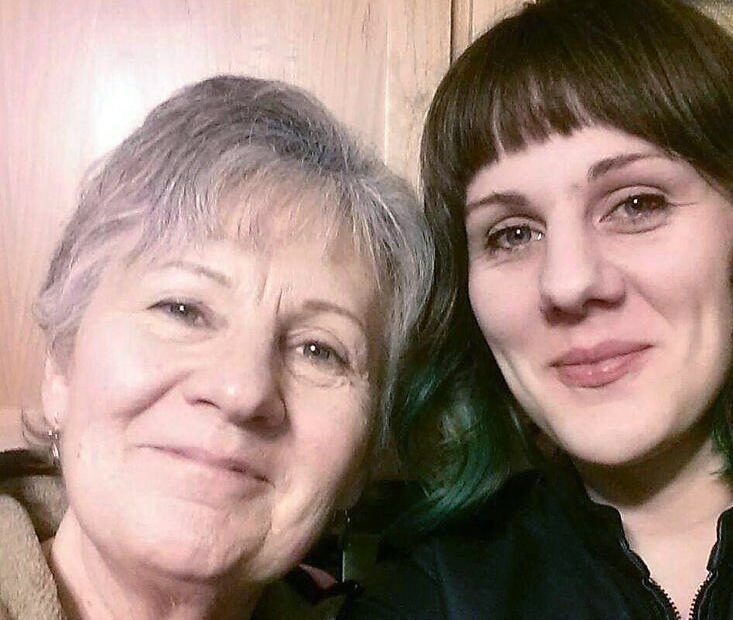
Yakima Journalist Who Lost Her Mom To COVID: Don’t Let Gatherings This Season Take Yours
LISTEN
WATCH
There’s a saying in economics: When my neighbor loses their job, it’s a recession. When I lose my job, it’s depression. In other words — we tend to understand the gravity of a situation when we are personally affected.
Perhaps that’s true for you during this pandemic year.
Emily McCarty is a Yakima-based reporter for Crosscut/KCTS. Her mom, Mary, died in a Spokane hospital in November, four days after being diagnosed with COVID-19.
McCarty wrote about her mom and her family’s personal experience in an essay titled “I lost my mom to COVID-19. Don’t let the holidays steal yours.”
“My mom went into urgent care, she was feeling unwell. They told her she had extremely low oxygen levels in her blood, and they said get an ambulance right away, go to the emergency room. That was Sunday, and then by Thursday – she found out she had COVID right away – and then by Thursday she had died, it was really quick,” McCarty said recently on NWPB’s Uniquely NW News program. “So I’ve definitely come to personally know the toll that COVID is taking on us as a country and the world.”
Watch the full episode above. See more from NWPB’s Uniquely NW News and all NWPB videos on YouTube.
CONVERSATION HIGHLIGHTS:
(Edited for length and clarity)
On memories of her mom and what kind of mom she was:
Hearing people talk about her via livestream at her memorial, I was listening in, and just listening to so many people whose lives she touched outside of her closest friends and family, we already knew how we felt about her, but she was the quintessential mother, she raised myself and three other siblings, she homeschooled all of us at one point in our lives, taught us all to read and write and do math, and made breakfast for us and packed our sack lunches and then when we got home, dinner was ready, and me and my brother and sisters did a bunch of sports, she was there, every event, cheering us on. I’m sure it was very boring sometimes to watch kids poorly execute skills in sports in junior high and elementary and high school, but she was there with my dad, cheering for us.
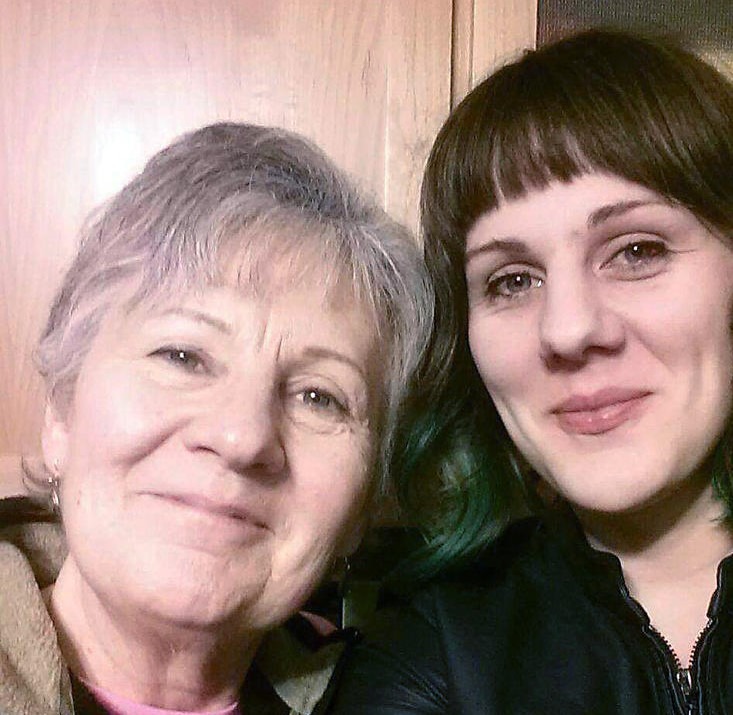
Journalist Emily McCarty and her mother, Mary, who died in November, four days after being diagnosed with COVID-19. Courtesy of Emily McCarty/Crosscut
When we were poor growing up, she decided to get a newspaper route, The Spokesman Review actually in Spokane, and she would wake up from around one to two in the morning to around three or four and sleep split shifts for years and years just to help the family out, she would go back to sleep and wake back up to help us kids all go to school. She was a giver and she was an incredible listener. When her pastor was speaking words about her at the memorial he said, you know, I rarely rarely see someone who no one speaks poorly about, and Mary was one of those people. She was just a sweet, kind, loving person, and she was really, if you met her, you just felt right at home.
On what it’s like previously covering the pandemic in central and eastern Washington and now having a very personal connection to it:
I’ve just become more and more passionate about the work, especially when it comes to reporting on COVID. I report on Central and Eastern Washington, and a lot of those opinions are very different then let’s say King County and Seattle where it’s very liberal and people are more likely to go along with Inslee’s restrictions. I’ve written pieces on people who don’t want to wear masks, who are protesting the shutdowns, don’t believe in the science, let’s say behind wearing masks, or how it’s spread. And I have to talk to these people and I can put my reporter hat on and listen, and still write about these topics. It’s hard, but I think it’s just so important to understand why America is like the worst country in the world when it comes to deaths. Why is it that way? We haven’t had federal leadership put together across the country, protocols, like Inslee has here in the state, we’re lucky that we have a mandate to wear masks here. But I think it’s really important that we understand where people are coming from, people who don’t think like us. Why do people not want to wear masks? Why do they not believe the science behind it? What are the reasons behind why we have so many deaths in such a high rate in our country and in our state? I’m able to separate those opinions from what I know.
On the contrast between what it’s like inside the hospital ICU with COVID patients and the outside world:
I think if more people saw what was going on inside ICUs, it would shock them, it would put a stop to all their plans, they would stop going for beers with their friends with their masks off, they would stop swinging by their grandparents’ house to say hi. When we knew the day that my mother was going to die, so my dad and my three siblings and I were allowed to visit her, we were very fortunate, normally, it’s two visitors only, an exception was made and they allowed us to rotate through, so that only two people were in the room at a time. So my dad and my siblings and I got to say goodbye to my mom. Just to start with, there’s no waiting room anymore, we had to stand outside, we were crying, it was freezing outside, because they’d shut down the waiting room, so there’s not even anywhere to comfortably wait. Once we were allowed inside, to start filing upstairs to the ICU to see my mom, we just had to stand against the wall and cry. It’s just horrible from the moment you get in there, there’s no privacy, there’s nowhere to go. … I had to wear full PPE, gown, gloves, N95, goggles, and I was just shaking so hard. If you’ve worn an N95, it’s got these rubbery straps, and it’s really hard to put on when you’re shaking. The nurses and the IC staff basically dressed me in my gown, in my goggles, in my N95, most wonderful ICU staff ever. … She was weak, she was small, she was nauseous, she was tired, it was hard for her to breathe, it was horrible, it’s horrible. I asked my mom if I could take a picture with her for one last photo, and she said yes, and she kinda said, oh, you know, don’t put it on Facebook, so I don’t share it. If I could, it’s a very powerful, striking photo, because it’s terrifying what she looked like, and if you could imagine your mom, or your grandma, or your cousin, or whoever, looking like that, I think you’d say, OK, I don’t think I need to go to one Thanksgiving this year, I think I can skip it. And we talked for maybe 15 minutes and I told her how much she meant to me, and I held her hand the whole time, and I was crying profusely, I had to lift my goggles, because they were just completely fogged over and said goodbye and walked out, and that was the last time I saw my mom.
On the grieving process being different now when close contact with friends and family is exactly what we’re being told to avoid:
I’ve gone to a seminar on grief, losing someone during COVID, during these times, and you know nothing really helps. I think it’s just, like they say, it’s a time game, you’re just gonna have to wait it out. I watched (the memorial service) via livestream, and it was great to memorialize my mother in that way, and I’m glad that at least got to watch something on livestream. But it’s difficult. I don’t go visit my family in Spokane. The last time I saw them, we all wore masks around each other for when my mom died. I don’t know, I don’t know how one grieves during this time, I think it’s really important to reach out on phone calls or video chat or whatever you’re comfortable with, but, in some ways, it’s good for introspection and time to think about things and be by yourself, but at the same time, it just feels, it’s very solitary, it’s very alone, and I really feel for the hundreds of thousands of families here in the US alone that are grieving.
On what she hopes people may take away from hearing her family’s story:
I will absolutely tell people do not gather, do not get together, do not hang out indoors with your masks off. If you’re getting together, you’re gonna be eating and drinking, you’re gonna take your masks off. … I wrote on Twitter: how do you shock people into doing this? I was just blunt, I said you might as well bring a shotgun to Christmas, Hanukah, holiday, whatever you celebrate, you’re basically shooting people with invisible little bullets. You’re giving them the worst gift you could possibly give someone for whatever holiday you’re celebrating coming up. You can skip one year. One year, that’s all you have to skip, the vaccine is gonna be coming within the next six to nine months for most Americans, we can slowly reduce wearing of masks, all you have to do is wait one year, and you can actually see your family. I don’t get to see my mom this Christmas, I didn’t get to see her at Thanksgiving, she died before then, I’m not gonna see her at my birthday next year. And you can prevent your mom dying, your family member dying, like mine died, by just not gathering, it’s so simple. … I hope that the story of my mom, and I hope it shocks them, I hope they hear how she died, and how horrible it was, and how it’s impacting me and my family, and they think, yeah, maybe I don’t want that to happen to my family member, I can maybe skip one Christmas, I hope that’s what people get out of this.
Related Stories:
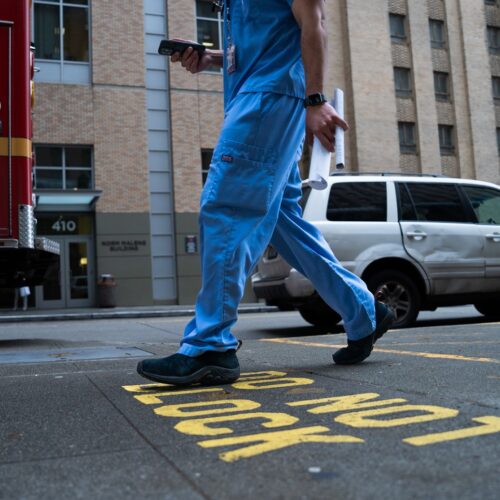
Long-COVID patients need more resources in central Washington
In Washington, there is only one clinic to treat Long-COVID. It is in Seattle on the west side of the state. Long-COVID haulers in the Yakima Valley face a lack of local resources, diagnosis and information. Some say they feel disconnected from their doctors. This is part three of a collaborative piece with palabra about Long-COVID.
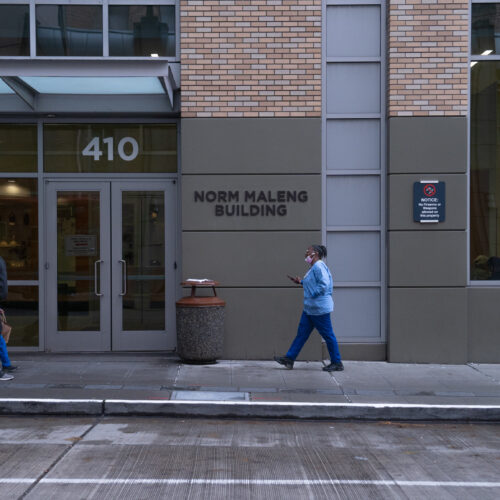
Pacientes de COVID persistente necesitan más recursos en el centro de Washington
En Washington sólo hay una clínica que trata a pacientes de COVID persistente o Long-COVID y está ubicada en Seattle, al oeste del estado. Los pacientes de COVID persistente del valle de Yakima se enfrentan a la falta de recursos locales, diagnóstico e información. Algunos dicen que se sienten desconectados de sus médicos.
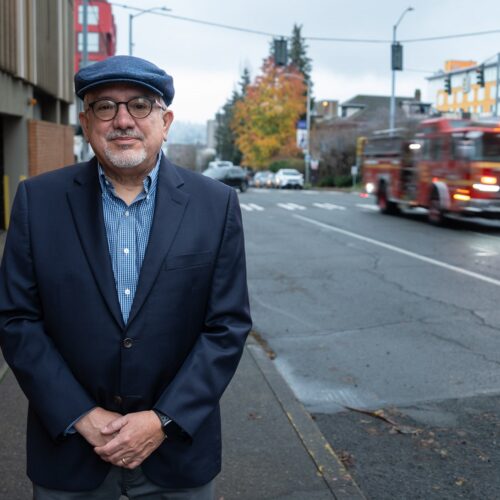
Long-term impacts of Long-COVID among Latinos being researched in WA
Researchers are looking into Long-COVID in Washington. Nearly half of Latinos were asked whether they have experienced prolonged COVID symptoms and their answers showed they have.















